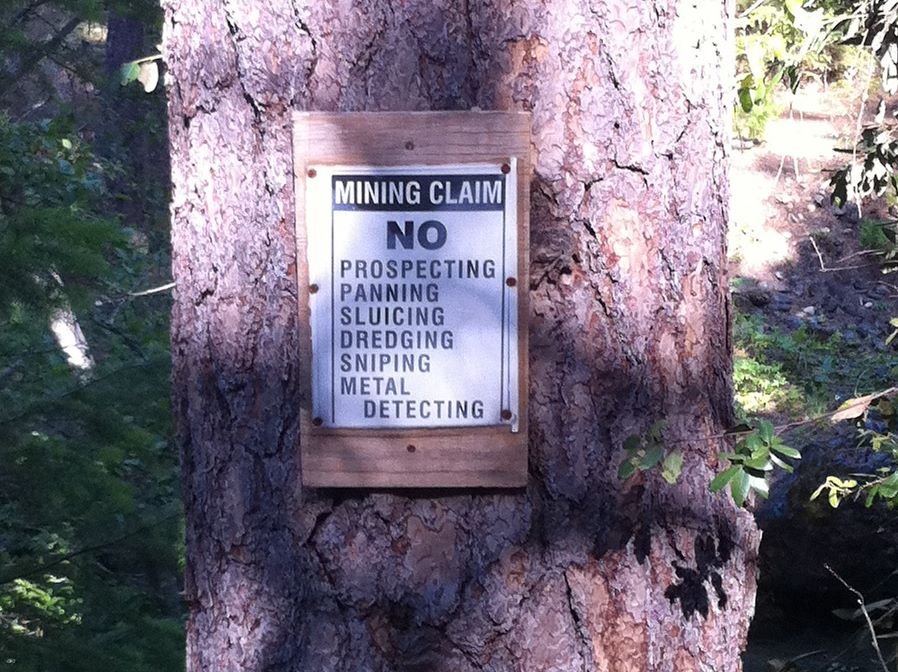After President Trump reduced the size of Utah’s Bears Ears National Monument, environmentalists feared the lands would be opened up to environmentally destructive mining. However, in the first six months, only one claim had been staked, a protest claim by public lands activists.
The conflict over mining in the former lands of Bears Ears is just the latest high-profile example of a long-simmering conflict over U.S. mining regulation. It is governed by the Mining Law of 1872, which declares federal lands “free and open” to prospectors. Although environmental and federal land regulations have modified that wild-west approach over the subsequent century and a half, it remains largely possible for anyone to go out on many federal lands and stake a claim. (But actually mining and profiting from that claim is another story. . .)
Opponents of this approach have lodged protest claims in areas they wish to protect from mining, with little success. According to the Huffington Post,
One can stake a claim without any intention of mining and hold onto it, presumably for years, as long as they are willing to pay the annual maintenance fee. But again, without a mineral discovery, the claim can be jumped. They [protestors] ultimately concluded it wasn’t an effective method.
Unable to compete with or bid against miners for claims, public lands activists have relied on politics and regulation. According to E&E News, the incoming Congress is likely to consider legislation to repeal the Mining Law and replace it with a leasing system, like that which applies to grazing and drilling on federal lands. However, that system often generates the same sort of conflict, thanks to use-it-or-lose-it policies and limits on transferring leases.
The most recent iteration, the Hardrock Leasing and Reclamation Act of 2018, would have converted claims to 20-year leases and imposed a 12.5% royalty on the extraction of minerals from federal lands. However, it did not provide conservationists a means to compete with miners for the rights to these claims.
Like other federal land leasing programs, the reform would adopt use-it-or-lose it by making it difficult to renew leases unless they’re being actively mined. If land is being mined, the lessee has a right to renew it in perpetuity at 10-year increments. But if the land isn’t being mined—because, for instance, an environmental group obtained the lease to protect an area from mining—there would be no automatic right to renew and federal officials would only have the discretion to renew such a lease once. This would continue to encourage conflict, rather than cooperation and negotiation.
As PERC’s Shawn Regan explained in a recent testimony to the House Natural Resources Committee on federal oil and gas leases, the solution to these conflicts is to allow many interests to compete for leases and make them freely tradeable.
The most direct market-based approach to resolve such competing demands would be to open oil and gas lease auctions to recreational, environmental, and conservation interests. Lease terms could explicitly allow individuals or groups seeking to withhold resources from development to hold a lease on terms similar to those that apply to energy developers. When development threatens local environmental values, such groups could coordinate to purchase and hold the development rights to a given property. . .
Enabling such a market-based approach to protect important local environmental values would reduce conflict and help ensure energy resources are developed only when they are likely to be more valuable to the public than other competing values.




